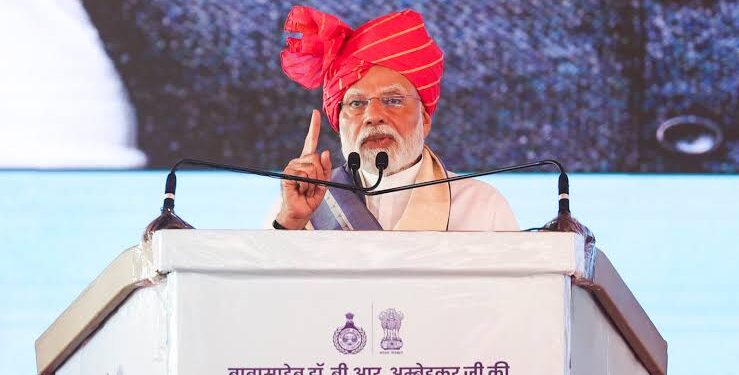A political storm has erupted following Prime Minister Narendra Modi’s controversial remarks on the usage of Waqf properties and their link to the socio-economic status of Muslim youth.
Speaking at an event inaugurating an airport in Haryana’s Hisar, the Prime Minister suggested that if Waqf properties had been used honestly, Muslim youths wouldn’t have to rely on repairing punctures for a livelihood.
The statement drew immediate and sharp backlash from Opposition leaders, who called the remark insensitive and divisive.
AIMIM chief Asaduddin Owaisi lashed out on social media, stating, “If the Sangh had used its ideology and resources in the nation’s interest, perhaps the PM wouldn’t have had to sell tea in his childhood.” Owaisi also criticized the Waqf Amendment Act, calling it a further weakening of an already fragile legal structure.
Congress MP Imran Pratapgarhi decried the comment as “troll language,” unbefitting of a Prime Minister. “You’ve pushed youth into joblessness. There are no opportunities. Muslims don’t just repair punctures — they’ve built this country. You talk of empowering them, yet you don’t have a single Muslim MP or minister to bring in the Waqf bill.”
Congress spokesperson Supriya Shrinate questioned the Prime Minister’s commitment to inclusion and social justice. “Why didn’t he pay tribute to Dr. Ambedkar on his birth anniversary? He questions Congress for not appointing a Muslim party president but won’t appoint a Dalit Chief Minister himself.”
In his speech, the Prime Minister accused the Congress of minority appeasement, blaming them for the poor socio-economic conditions of Muslims due to decades of neglect. “Only fundamentalists benefited; the rest of the community remained uneducated and poor,” he claimed, referring to the misuse of Waqf properties as a key example.
The Waqf Amendment Bill, passed earlier this month despite stiff resistance from the Opposition, is now law. While the BJP says the legislation aims to ensure better governance of Waqf properties, critics argue it’s an attempt to control minority resources and further marginalize the community.





























